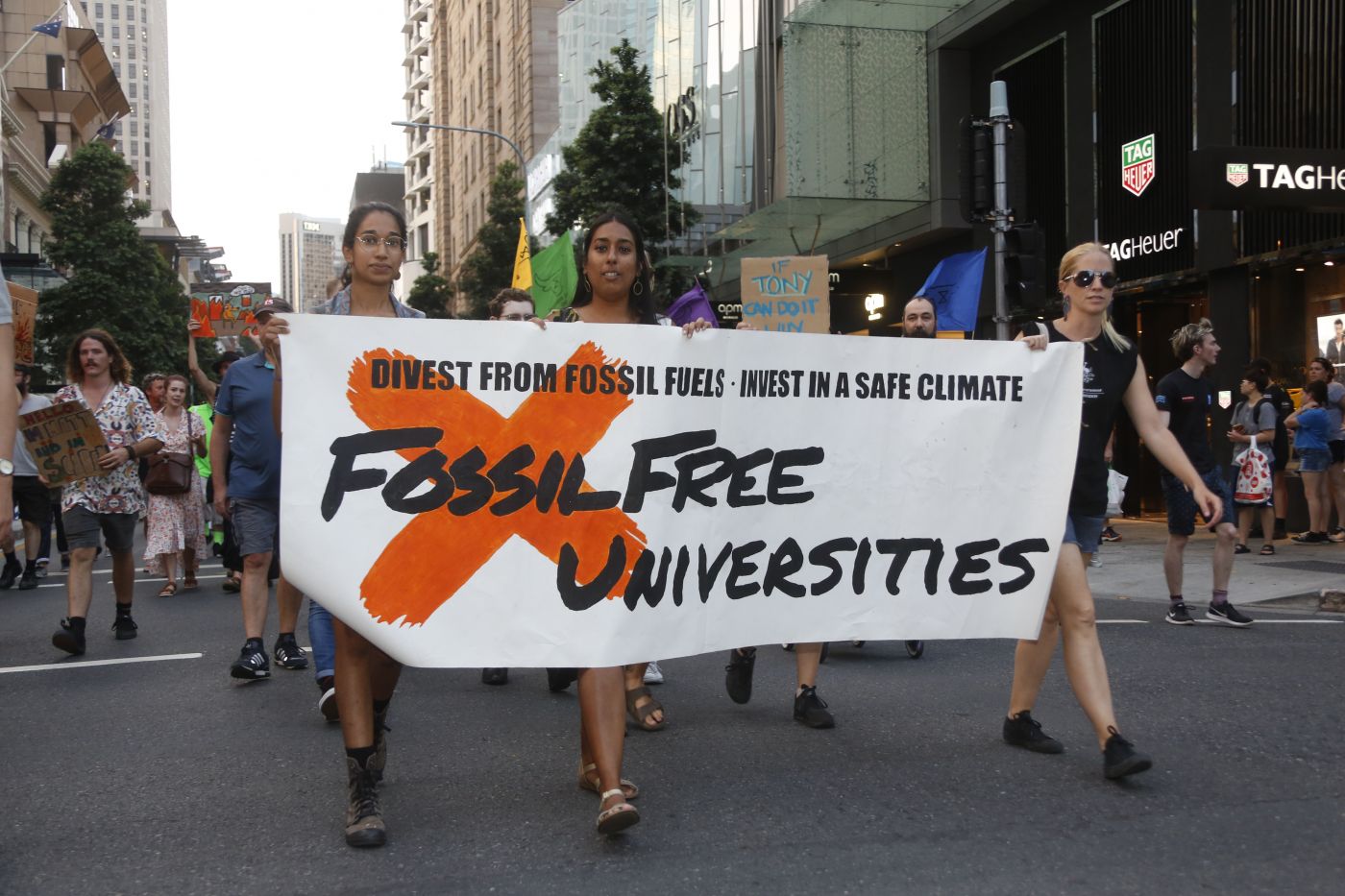The Divestment Campaign: Stop the Fossil Fuels Money Pipeline
Author: Editorial Board | Category: Environment & Nature | Date: 07-29-2021

Divestment Campaign:
Stop the Fossil Fuels Money Pipeline
Divestment—the selling of stock and bond holdings in fossil fuel companies--is a powerful action that we an take right now to combat climate change
From a campaign that began 10 years ago on a handful of college campuses in the U.S. there are now over 2,000 institutions around the world that have committed to divesting from fossil fuel companies. These institutions include Ireland, New York State, New York City, the state of Maine, the World Council of Churches, the Episcopal Church, the Rockefeller Brothers Fund, the University of California, and numerous universities and cities around the world.
Approximately $15 trillion has been divested or has been pledged to be divested.
Despite what naysayers have said about how fossil fuels divestment does not work, the fact is that the impact of the 10-year old divestment movement has been nothing short of stunning.
Stigmatization and Declining Stock Prices
The divestment movement has stigmatized the fossil fuel industry through its unrelenting moral condemnation of the business of continuing to supply the world with coal, oil and gas--when the world is already suffering from the devastating consequences of climate change.
This stigmatization has dealt a severe blow to the fossil fuel industry by undermining its social license in the eyes of many. Not only has this led to increasing momentum in the divestment movement; this stigmatization has also contributed to a sustained downturn in the stock prices of fossil fuel companies.
$10,000 invested in an oil and gas sector ETF (Exchange-Traded Fund) like XOP 10 years ago would now be worth less than $5,000
Given the precipitous decline in the value of fossil fuel companies, the case for divestment is more compelling now than ever before. The immorality of investing in fossil fuels is now conjoined with a strong financial argument to divest.
In fact, some major asset fund managers now view fossil fuel investments as speculative and risky. Thomas DiNapoli, the New York State comptroller who announced in December 2020 that he will be divesting the state’s pension fund over the next 5 years, indicated that his main reason for divesting was his fiduciary responsibility to protect the fund and to position it for success in a low carbon world.
Still Alive: Down But Not Out
However, despite these major setbacks, the fossil fuel industry is still very much alive—especially after 4 years of support from the Trump administration. Fossil fuel companies are continuing their exploration, extraction, transporting, refining, and marketing activities. One reason for their continuing viability is because fossil fuel companies have continued to receive government subsidies and massive funding from big banks. Since the 2015 Paris Agreement, the top 10 banks have loaned a total of over 1.5 trillion dollars to fossil fuel companies. (more)
Furthermore, they have continued to receive government subsidies, even under the Biden administration. This is due to the fact that a significant percentage of the annual $15 billion in US subsidies the fossil fuel industry receives is controlled and managed by Congress, which means that legislation would be required to end the subsidies. (more) To end federal subsidies, there will have to be consistent pressure from constituents.
Given the continuing infusion of bank loans and government subsidies, the fossil fuel companies are still alive and kicking.
But, given their growing status as moral pariahs, their deteriorating financial standing, and a Biden administration that is determined to combat climate change, now is the time to strike.
What is At Stake: The Ravages of Climate Change
Let’s remind ourselves that if we do not rein in fossil fuel companies’ appetite for burning all of the reserves they now hold—approximately 2, 795 gigatons of CO2—the amount released into the atmosphere would be more than five times the amount that can be burned without exceeding the 2.0 degrees Celsius of warming that most scientists consider the absolute line in the sand before we tip over into a state of climate Armageddon. (more)
What does that mean in terms of tangible real world consequences?
For one, the extreme weather events we have already witnessed—raging wildfires, record-shattering heat waves, perpetual droughts, severe floods—will accelerate. Extreme weather events, once predicted to occur in 20 to 30 years, are occurring now, so the acceleration is already more than evident and the severity of weather extremes has exceeded scientists’ predictions. (more)
What Should We Do?
If you would like to play a role in this historic movement to combat climate change, these are the steps you can take right now:
• Register at Gofossilfree.org to receive ongoing news about divestment activities.
• If you would like to do more, you may consider taking the following actions:
1. Lobby your city council and your county board of supervisors to make a commitment to the following: a). adopt a fossil-free investment policy b). divest from fossil fuels if they have not already done so.
We can provide you with letters to your local legislators and a divestment resolution that spells out the steps we would like government officials to take.
2. To do the above (step 1), you may feel the need to be part of a group in order to receive feedback and ongoing support. If so, you can contact the Environmental Legislative Action Committee in our Sierra Club chapter—Loma Prieta--and you can either join our committee, or we will try to help you connect with another group.
To inquire about joining our divestment campaign, contact us: [email protected]
SHARE THIS NOW
Comment:
Add Review:
Find Us
New Categories
Recent News
Fosopogandists
Category: Environment & Nature
Representation matters
Category: Environment & Nature
Repair the world with public microgrids, an informed public, and public participation
Category: Environment & Nature






